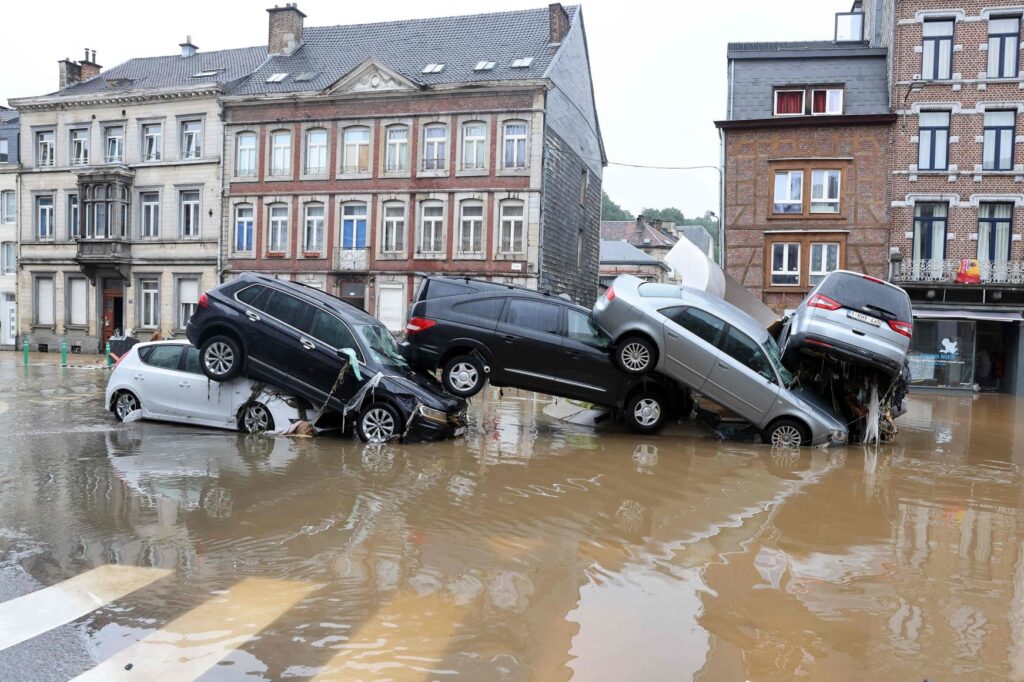Study urged rich nations to consider the resultant economic risks and make a public declaration of ambition at upcoming G20 summit
Climate change will have devastating impacts on the G20, which includes the world’s richest economies, according to a new report. The G20 Climate Impacts Atlas, which was published just ahead of the G20 summit, found that over the past 20 years, heat-related deaths have increased by at least 15% in all member countries. It also revealed that forest fires in the G20 have burnt an area one-and-a-half times the size of Canada. And if emissions keep rising, worse is to come.
The new report from the Euro-Mediterranean Center on Climate Change (CMCC) collated scientific projections of how climate impacts will play out in the world’s richest countries over the coming years. It found that on a high-emissions pathway, climate impacts spiral to cause devastating damage across the G20. Donatella Spano of CMCC, who coordinated the report, said: “From droughts, heatwaves and sea level rise, to dwindling food supplies and threats to tourism – these findings show how severely climate change will hit the world’s biggest economies, unless we act now.”
India, brace for impact
The projections showed that rising temperatures and intense heatwaves in India could cause severe droughts; threatening essential water supplies for agriculture, causing huge loss of human life and increasing the chance of deadly fires.
For India, the study predicted heatwaves will last 25 times longer by 2036-2065 if global temperature rise is constrained to 4°C, over five times longer if it is limited to about 2°C, and one-and-a half-times longer if emissions are very low and temperature rise only reaches 1.5°C.
Declines in rice and wheat production in the country could spark economic losses of up to €81 billion and a loss of 15% of farmers’ incomes by 2050, according to the study.
On the 4°C pathway, agricultural drought will become 48% more frequent by 2036-2065. On a 2°C pathway, this drops to 20% more frequent, and in a 1.5°C warming scenario, agricultural drought will still be 13% more frequent.
The report also revealed that by 2050, in a high emissions scenario, 18 million Indians would be at risk of climate flooding compared to the 1.3 million currently.
‘Climate risks are economic risks’
The report stated that G20 countries can no longer afford to treat climate risks in terms of ‘climate policy’, and that climate risks are economic risks, whether or not a country is progressive on climate policy.
The G20 as a whole stands to lose about 4% of GDP due to climate shocks as soon as 2050, and 8% by 2100, the report stated. The USA, Saudi Arabia, India, Japan, and South Korea could all see more than 10% knocked off their GDP due to worsening climate impacts, with Canada, Indonesia, and South Africa projected to experience losses of over 13%.
The COP26, therefore, is a chance for G20 governments to respond to these economic risks and make a public declaration of ambition, the report concluded. “The window to act is closing fast. As the G20 countries incentivise economic recovery from COVID-19 and prepare climate plans ahead of COP26, they face an urgent choice: to protect the global economy and make a rapid transition to a low-carbon future; or derail the global economy by pursuing polluting policies. It’s time for the G20 to make its economic agenda, a climate agenda,” said Laurence Tubiana, head of the European Climate Foundation and one of the architects of the Paris Agreement.
About The Author
You may also like
Rise in Fossil Fuel Burning is Making Floods Lethal in Asia
Climate Governance Shows Progress, But Gaps Still Remain 10 yrs After Paris Agreement: Report
A Fifth of Migratory Species Face Extinction from Climate Change: Report
Climate change, unplanned construction and a malfunctioning dam can worsen the flooding in north Bengal
Switch to renewables reduces emissions, improves worker condition for fashion industry: Report

